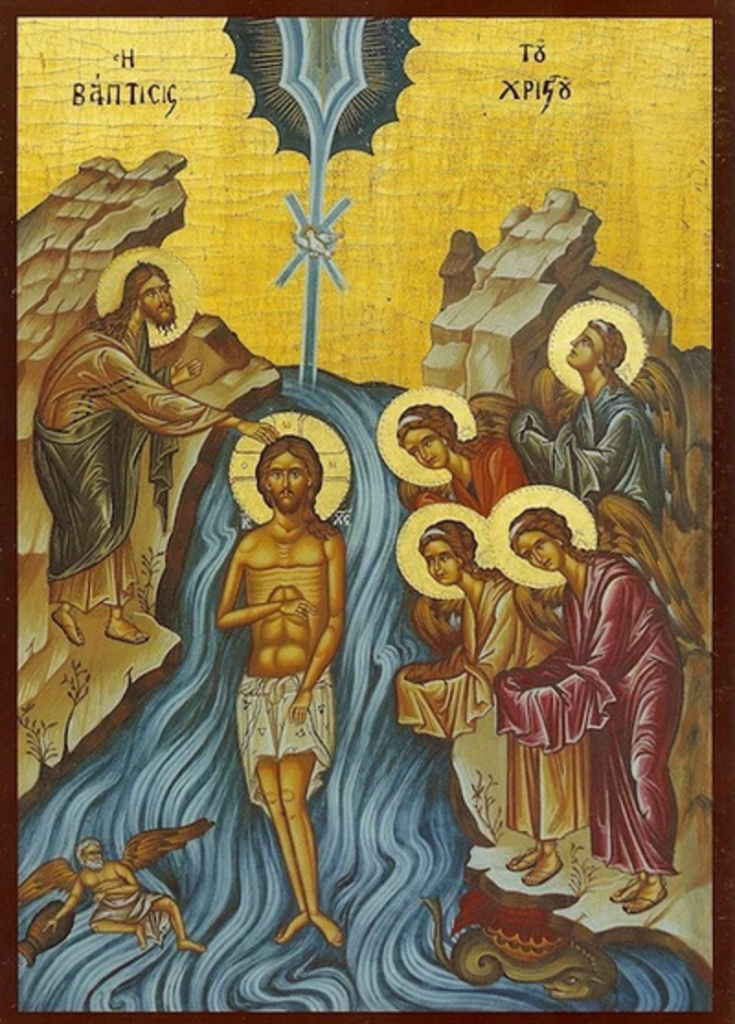Scripture Readings

I think that we Christians have committed a grave mistake. It was (and is) unintentional—in fact, we’ve done it with the best of intentions. Our mistake has been practically to destroy the meaning of the gospel—the Good News—of the coming of Our Savior. Let me explain. We’ve turned God’s dealing with His people, including the life, death, and Resurrection of Christ, into a collection of fairy tales. Our popular literature is full of so-called “Bible stories” suitable for reading to preschoolers. I even have a book on my shelves called, Bible Stories You Can’t Forget—No Matter How Hard You Try.[1] It’s all about making our faith palatable for children, teaching them about the Bible. We want them to share our faith, not understanding that we’re most often destroying that faith in the process.
The theory behind this is simple: children of Christian parents are considered to be born into a faith community and are supposed to be nurtured in that faith community as they grow into adult Christians. That’s why, since earliest times, babies were baptized. For example, in the book of Acts [16:33], the apostle’s jailer and his whole family were baptized. Family, or infant, baptism is done in virtue of the faith community into which they have been born. Sadly, the theory hasn’t proved itself in practice. Adult Christians seem to develop despite their early exposure to Christianity rather than because of it. I’m regularly confronted by ex-Christians—especially ex-Catholics—who are vocally critical of their religion. But, if you listen to them, the religion they’re critical of has its roots in childhood beliefs that have never grown and matured. The terrible secret about Christian religious education is that it’s practically useless as it’s presented today. Why? Because Christianity just isn’t for kids.
Consider the opening words of today’s gospel from Saint Luke: “The people were filled with expectation, and all were asking in their hearts whether John might be the Christ.” Expectation comes from longing, and longing comes from desperation. The Christ—the Messiah—was to be a savior king. People don’t need a savior who are not in despair. Despair—particularly today—is a very adult experience, even though some children, unfortunately, experience it. In most cases, it takes an adult to experience utter powerlessness—the powerlessness of loss, the powerlessness of facing overwhelming odds, the powerlessness of incapacity, the powerlessness of inevitability, the powerlessness of futility.
Over the course of history, the Israelites faced just such a powerlessness: the powerlessness of childlessness, the powerlessness of slavery, the powerlessness of aimless wandering, the powerlessness of foreign occupation. Theirs was not a superficial longing. It was a desperation born of generations of unfulfilled promises from a God whom they clung to with their last flicker of hope. It was a desperation that had seeped into their DNA. So, in the gospel, we hear, “The people were filled with expectation…” The hope for a Messiah-king was what kept them going. That’s the backdrop for today’s readings.
To understand the message of Luke’s gospel, we have to take a step back and look at his writings as a whole. The first two chapters of his gospel are but the prolog. It starts with two parallel annunciations, first, of the birth of John the Baptist, then that of Jesus and Mary’s overshadowing by the Holy Spirit. This leads us into the nativity and infancy narratives. The real core of Luke’s gospel begins here, in chapter three with Jesus’s baptism, it continues through his life and ministry and ends with his death, Resurrection, the promise of the Holy Spirit, and the Ascension. The second volume of Luke’s work, the Acts of the Apostles, begins where the gospel leaves off: with the ascension and the coming of the Holy Spirit, the fulfillment of Christ’s promise. The rest of the Acts shows the Holy Spirit at work in the world through the Church.
Looked at like this, we might say that Luke’s writings are an ode to the Holy Spirit. It begins with the Holy Spirit coming upon Mary, proceeds with the Holy Spirit coming upon Jesus at his baptism and continues throughout his ministry, empowering his death and Resurrection, and finally coming upon the disciples at Pentecost. By its focus on the power of the Holy Spirit infusing the people of God, the gospel transforms their hope from one of a hero to save them to an understanding that their salvation from hopelessness and despair lies within.
The appearance of the Holy Spirit at Jesus’s baptism is a sign to believers that the power they hoped for for so long has come into their midst to deliver them from their powerlessness and despair. Jesus’s whole ministry, his death and Resurrection, serve as testimony to believers of the power of the Spirit. It not only delivers us from futility, it delivers us from death itself—the ultimate powerlessness. Only an adult can appreciate true powerlessness, therefore, only an adult can grasp the enormity of the power of the Holy Spirit.
This year, we’re reading Luke’s gospel. Now that we have experienced the start of Jesus’s ministry in today’s gospel, we will be shown, in the weeks to come, how the Holy Spirit worked through him. Forget about the Bible stories. From here on out, we’ll focus on how the power of the Holy Spirit manifested itself in Jesus so that we can see more clearly the power of the Holy Spirit given to us at our baptism and how it is at work here and now saving us from powerlessness and despair.
Get articles from H. Les Brown delivered to your email inbox.
[1] Marshall Efron and Alfa-Betty Olsen, Bible Stories You Can’t Forget No Matter How Hard You Try, Clarke, Irwin & Company, Limited, Toronto, 1976.
